Azerbaijan’s Olympic performance and challenges Paris 2024 review
The Summer Olympics, held in Paris from July 26 to August 11, have concluded. Over 10,000 athletes competed in Paris, including representatives from Azerbaijan, who secured 41 Olympic licenses. Among these athletes, seven managed to bring medals for Azerbaijan: 2 gold, 2 silver, and 3 bronze.
As the Olympic flame in Paris begins to fade, various media outlets have already started assessing the Azerbaijani team's performance, often in a highly unprofessional, biased, or sensationalist manner. We will take a more factual approach, evaluating the effectiveness of Azerbaijani athletes' participation across all kinds of sports in which they competed. Additionally, we will make comparisons with previous Games to provide a comprehensive analysis.
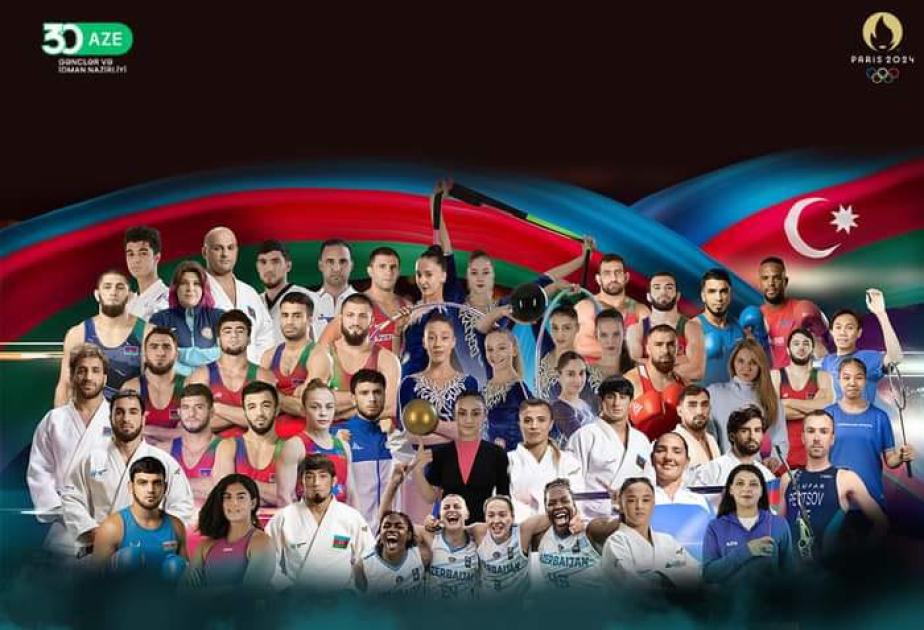
The Paris Olympics marked the ninth time Azerbaijani athletes competed as representatives of an independent nation. From 1952 to 1988, they competed as part of the Soviet Union team, and in 1992, they were part of the Unified Team of the Commonwealth of Independent States (CIS). Azerbaijan’s final ranking of 28th out of 206 countries is the best result the country has achieved in its independent Olympic history.
Previously, Azerbaijan's best performance was at the London 2012 Olympics, where the athletes ranked 30th in the overall medal standings, despite winning more medals (2 gold, 2 silver, and 5 bronze). In terms of gold medals, Azerbaijan did not surpass their performance from the Sydney 2000 or London 2012 Olympics, securing 2 gold medals in Paris as well. For comparison, Armenia ended up without any gold medals this time, earning 3 silver and 1 bronze, and ranking 67th in the overall standings.
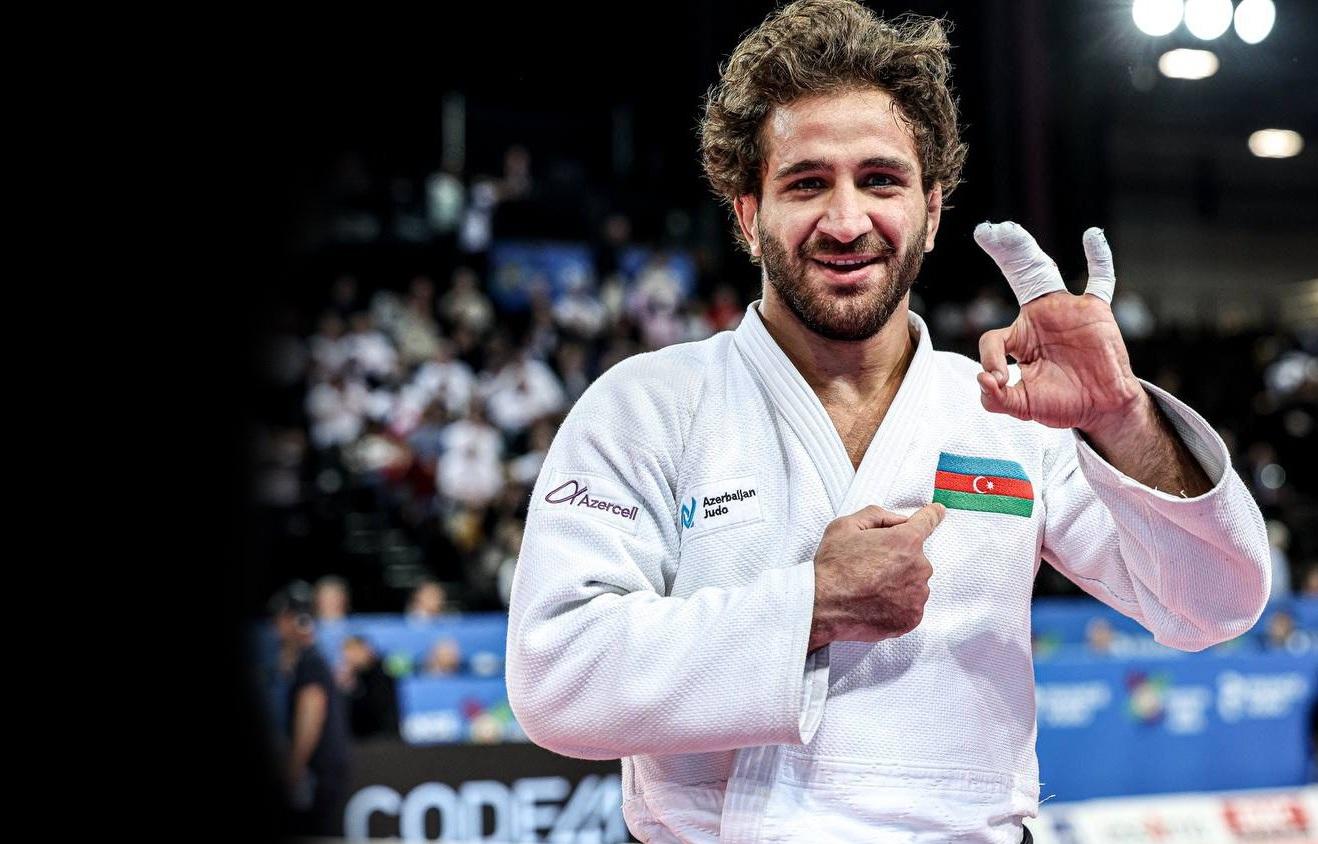
The most successful team in the Caucasus was Georgia's team, which also won seven medals, but secured three golds, leading to a 24th place in the overall medal standings. In contrast, five of Azerbaijan’s seven medals in Paris were won by foreign-born athletes: Zelym Kotsoiev (judo), Alfonso Dominguez (boxing), Gashim Magomedov (taekwondo), Giorgi Meshvildishvili, and Magomedkhan Magomedov (both in freestyle wrestling). This heavy reliance on foreign talent raises concerns.
For comparison, Uzbekistan, which, like Azerbaijan, invests substantial resources into sports, achieved 13th place in the overall standings solely with local athletes. Uzbekistan won more gold medals (8) than Azerbaijan did in total (7), highlighting a significant disparity in outcomes.
Azerbaijan performed significantly better at the Paris Olympics compared to the Tokyo Games, where the Azerbaijani athletes won the same number of medals but without any gold (0-3-4), resulting in the 28th place instead of the previous 67th.
At the Paris Games, Azerbaijan fielded nine judo competitors, including three foreign-born athletes. Hidayat Heydarov (73 kg) lived up to expectations by winning gold. While Zelym Kotsoiev had some luck in the final, other judokas like Leyla Aliyeva (48 kg), Gultaj Mammadaliyeva (52 kg), Balabay Aghayev (60 kg), Yashar Najafov (66 kg), and Zelim Tckaev (81 kg) failed at the beginning. Ushangi Kokauri’s performance was notably disappointing.
Despite these mixed results, judo remains the sole source of gold medals for Azerbaijan. The question of who deserves the most credit—whether it’s the Ministry of Sports, the Judo Federation, the head coach, personal trainers, or the athletes themselves—is a separate discussion.
The Wrestling Federation has found itself in a difficult position after a notably poor performance at the Olympics, marking a significant downturn for sports that has long been a flagship of Azerbaijani athletics. For the first time, Azerbaijani wrestlers failed to deliver, with only three bronze medals falling far short of the expectations held by fans and sports officials alike.
Greco-Roman wrestlers Sanan Suleymanov (77 kg) and Sabah Shariati (130 kg) lost their bronze medal matches. Murad Mammadov (60 kg) and Rafig Huseynov (87 kg) failed at the beginning, while Mariya Stadnik (50 kg) lost in her second bout. In freestyle wrestling, Aliabbas Rzazade (57 kg) and Turan Bayramov (74 kg) also fell in their initial matches, and Haji Aliyev (65 kg) and Osman Nurmagomedov (86 kg) were defeated in their second rounds.
Despite providing all necessary conditions for preparation, including extensive support to the wrestlers and coaching staff, the disappointing results raise questions about the effectiveness of the training and preparation processes.
The disappointing performance of Azerbaijan's wrestling teams raises serious questions about the coaching staff led by Alexander Tarakanov (Greco-Roman wrestling) and Khetag Gazyumov (freestyle wrestling). The old adage suggests that a team wins because of its athletes but loses because of its coaches, and this situation seems to be a case in point.
It is difficult to place blame on individual athletes like Mariya Stadnik and Haji Aliyev, who have gained more medals over their careers than athletes of many countries have achieved in sports history. One struggles to believe that Rafig Huseynov, who risked everything including his health and reputation, did not strive for victory.
The poor results prompt a critical examination of the coaching strategies and preparation processes. How could such experienced athletes fall short despite the extensive resources and support? The focus now must shift to understanding what went wrong and how to address these issues for future competitions.
The early defeats of potential medalists Murad Mammadov and Turan Bayramov have raised serious concerns about the effectiveness of the coaching staff, led by Alexander Tarakanov (Greco-Roman wrestling) and Khetag Gazyumov (freestyle wrestling). It is perplexing how such promising athletes could lose in their initial matches, and accountability for these outcomes should be placed squarely on the coaches.
While the three bronze medals won by Hasrat Jafarov (67 kg), Giorgi Meshvildishvili (125 kg), and Magomedkhan Magomedov (97 kg) are commendable, they are insufficient to overshadow the broader issues facing the team. The disappointing performance of key competitors highlights a need for a thorough review of coaching methods and preparation strategies.
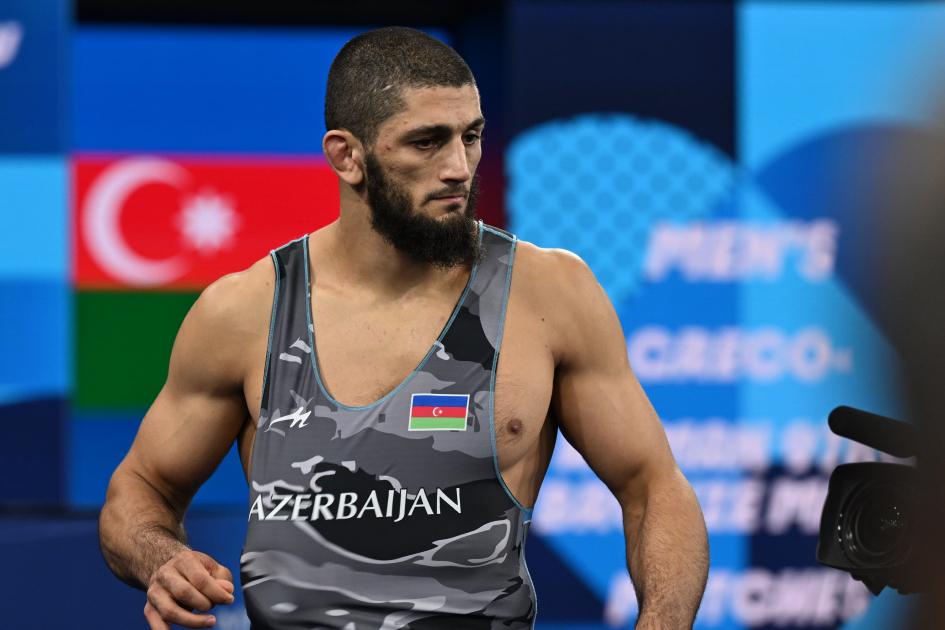
There is a hope that the coaching staff will address these concerns and work to ensure that such early exits do not recur in future competitions.
Even with Alfonso Dominguez securing a silver medal, the performance of the Azerbaijani boxing team is likely to come under scrutiny, particularly concerning the head coach of the men's team, Pedro Roque.
Out of five Azerbaijani boxers, three—Nijat Huseynov (51 kg), Malik Hasanov (63.5 kg), and Mahammad Abdullayev (+92 kg)—were eliminated in their first bouts. Murad Allahverdiyev advanced only one round before being knocked out. Despite Dominguez's historic achievement as the only Azerbaijani boxer to win two Olympic medals, his lackluster performance in the final raised numerous questions about both his preparation and the effectiveness of Coach Roque’s guidance.
The lack of significant progress and the early exits of several athletes suggest a need for a detailed review of the coaching strategies and training methods.
Another kind of sports experiencing significant issues is badminton, where the team, composed of Filipinos Keisha Fatimah Zahra and Ade Resky Dwicahyo, has been drawing substantial resources from the federation's budget year after year. These funds, which could have been invested in developing young domestic talent, have instead supported athletes who have consistently underperformed, exiting at the group stage of the Olympics.
The situation is compounded by the federation’s lackluster media engagement, which operates at a superficial level and fails to provide in-depth coverage of international competitions. This inadequate approach contributes to the perception that there are no competent sports journalists in the country, despite the reality that such coverage is hampered by the federation’s own practices.
The federation’s failure to effectively utilize its resources and communicate with the public reflects poorly on its management and raises questions about its commitment to advancing the sports in Azerbaijan.
The Basketball Federation and Azerbaijan’s women’s 3x3 team should hold their heads high for their impressive performance at the recent competition. The team fell just short of reaching the final stage, missing out by a mere two points.
Despite this narrow margin, the women’s team, making their debut at such a high level of competition, managed to secure victories against powerhouse teams like the US and China—an achievement that speaks volumes about their skill and determination.
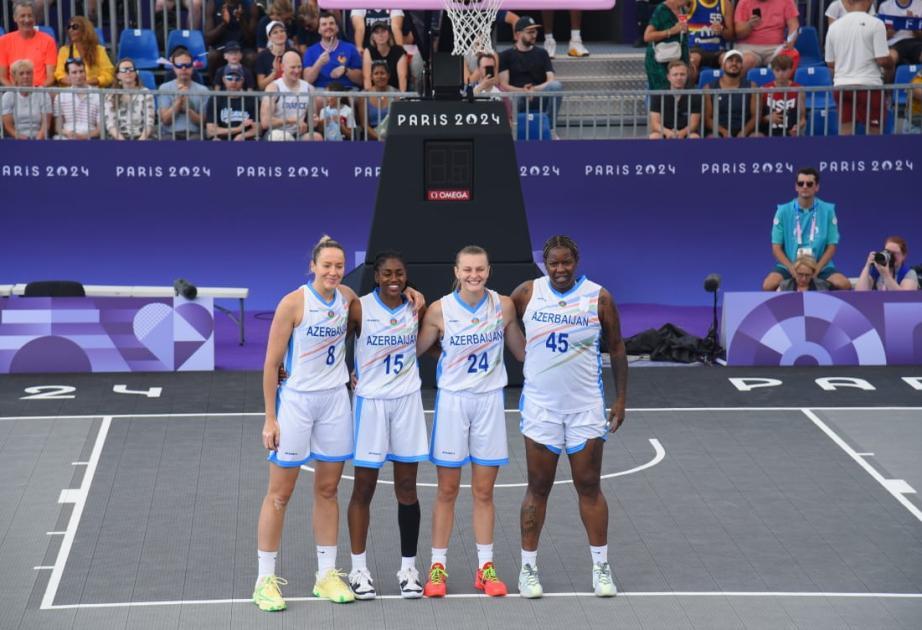
Their performance highlights the potential and dedication of Azerbaijani basketball, showcasing that even in defeat, there are significant accomplishments and reasons for pride.
The Paris Olympics marked a notable achievement for Azerbaijani taekwondo, thanks to the dedication of head coach Mammad Abdullayev. Despite a turbulent period involving his appointment and removal, Abdullayev led Azerbaijan to a silver medal with just one athlete competing.
Gashim Magomedov has won the hearts of Azerbaijani fans with his relentless determination. His performance, especially his courageous battle against a Korean opponent despite a severe injury sustained early in the match, earned him immense respect and admiration from the audience. Magomedov's perseverance and tenacity exemplify the spirit of true sportsmanship and bring pride to Azerbaijani taekwondo.
Azerbaijani hammer thrower Hanna Skydan's performance at her fourth Olympics was less than expected, as she finished seventh despite reaching the finals for the first time. Given that her competitors did not deliver exceptional results, there was potential for at least a bronze medal. Unfortunately, her overall performance remains satisfactory.
In shooting and swimming, the results were equally underwhelming. Shooter Ruslan Lunev continues appearing at the Games without notable achievements, while the swimming team's results remain stagnant despite changes in athletes. The most notable outcome in swimming was simply finishing the races.
The gymnastics team demonstrated notable success, with trampoline gymnast Seljan Mahsudova narrowly missing out on the finals in trampolining and the rhythmic gymnastics team achieving a historic top-five finish. The rhythmic team managed to overshadow the disappointing performance of gymnast Zohra Aghamirova, while in swimming, no athlete managed to mitigate the overall disappointment.
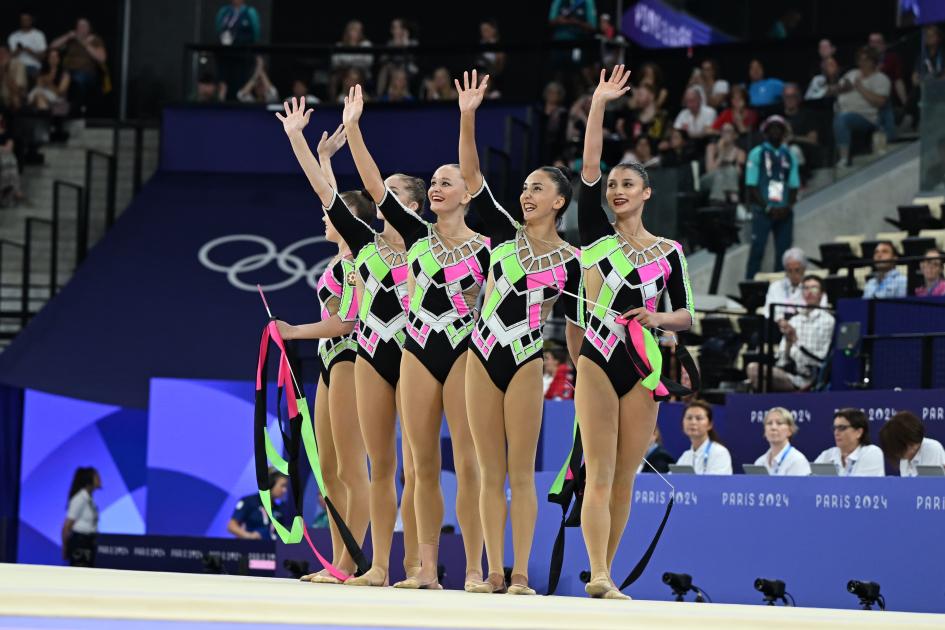
Even pregnant Yaylagul Ramazanova in archery outperformed both the swimming duo and Ruslan Lunev, highlighting a contrast in performance levels. Similarly, Diana Dymchenko in rowing advanced past the first round, unlike swimmer Mariam Sheikhalizadeh, who, despite competing in a less competitive group, could only secure third place in the 50m freestyle and did not advance to the semifinals.
The varying degrees of success across these kinds of sports highlight the diverse outcomes for Azerbaijan's athletes at the Olympics, with gymnastics standing out as a bright spot amidst broader challenges.
The Triathlon Federation’s strategy has come under scrutiny for its persistent reliance on triathlete Rostislav Pevtsov, a legionnaire who has represented Azerbaijan at three consecutive Olympics without finding significant competition for his spot. Since 2013, Pevtsov has been the federation's sole representative in major events, culminating in a disappointing 43rd place in Paris.
This raises questions about the efficacy of investing in an athlete who consistently ranks in the lower tiers of prestigious competitions. Despite securing a few minor trophies in local events, Pevtsov’s performance on the global stage highlights a gap between investment and results.
The continued focus on Pevtsov, rather than seeking or developing local talent, underscores a concerning pattern. It’s crucial to evaluate whether such investments are yielding tangible benefits or merely maintaining a status quo that fails to elevate Azerbaijan’s standing in international triathlon.
There is a strong hope that the leadership of the mentioned sports federations will take the lessons from the Paris Olympics to heart and reassess their reliance on certain legionnaires. It’s crucial to address the "legionnaire ballast" that appears to hinder rather than help the advancement of domestic sports. The focus should shift towards nurturing and developing local talent to foster a more successful and competitive sporting environment.
By Vugar Vugarli
The views and opinions expressed by guest columnists in their op-eds may differ from and do not necessarily reflect the views of the editorial staff.








